Self-Hosting Guide to Alternatives: Pocket, Omnivore
Self-hosted alternatives to popular online read later and bookmarking services

Bookmarking and read later services are valuable tools for those who stumble across more content than they can digest or frequently need to revisit articles and webpages at a later point in time. And in light of the recent news of ElevenLab's Omnivore acquisition, FOSS advocates and self-hosters alike are on the hunt for alternatives to the popular but soon-to-be-defunct project.
Fortunately, several viable alternatives exist that make switching from popular platforms like Pocket and Omnivore a breeze.
Wallabag
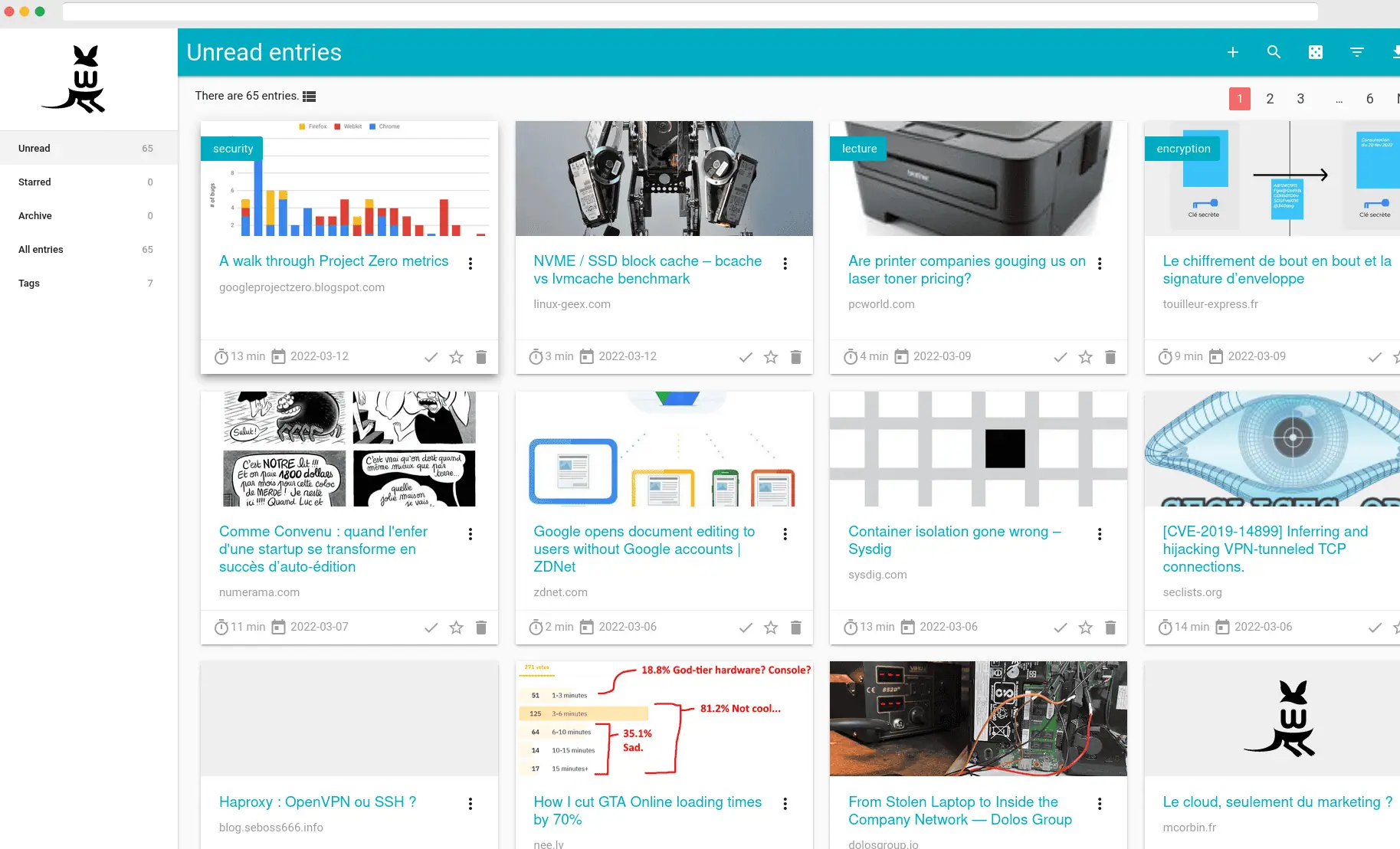
Wallabag is arguably the most popular self-hosted alternative in the space, and for good reason – the platform is easy to deploy and includes all of the essential functionality required for archiving, saving, and sharing content. Relative to some of the other options, Wallabag's interface is a bit simplistic and the application doesn't currently come with any AI features for things like automatic tagging and article summarization – but some users may find this to be more of a feature than a gap.
Wallabag's biggest strength shines in its integrations with third-party tools for easily archiving content without direct access to its web interface, which include browser extensions, mobile apps, eink devices, and RSS readers.
Deployment is straightforward with options for both bare metal and Docker. Its default SQLite database can also be replaced with MySQL or PostgreSQL if desired.
Shiori
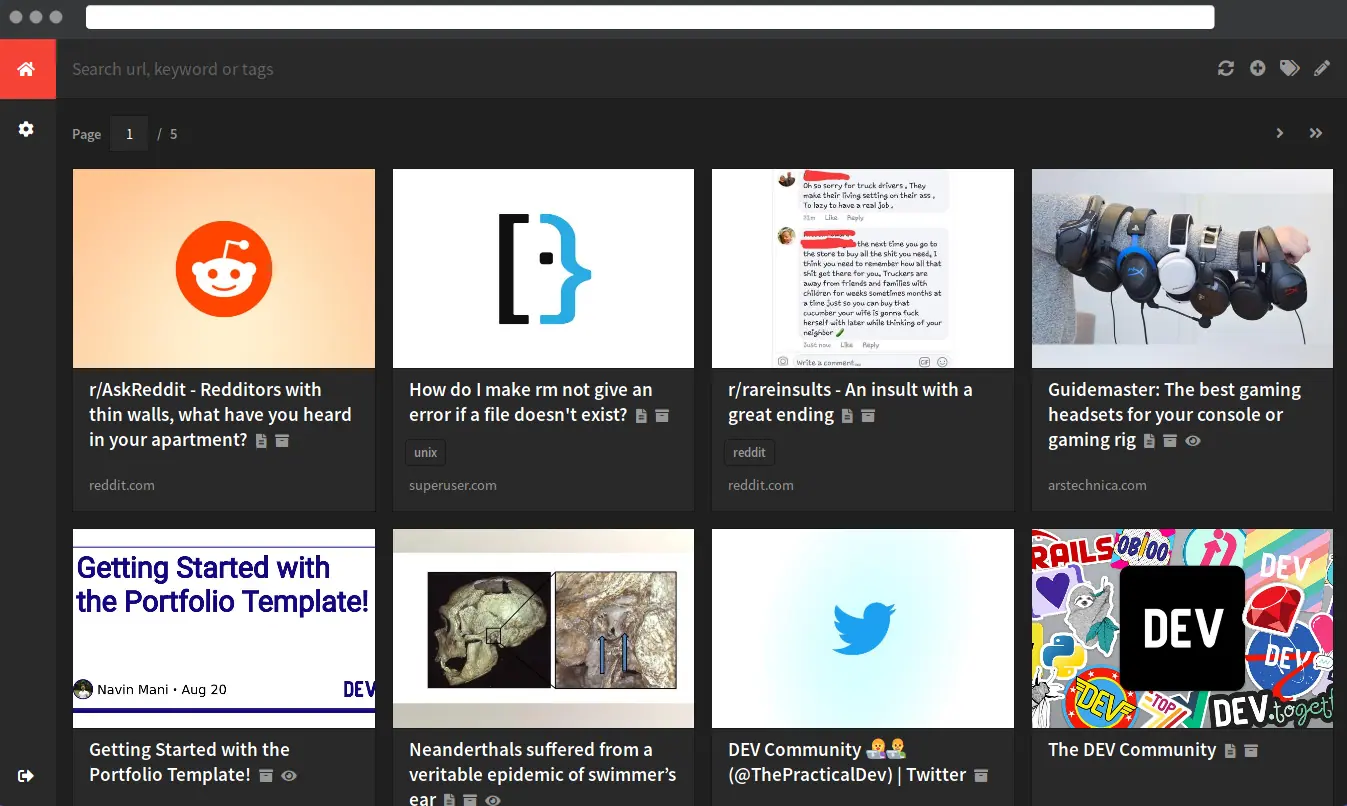
Shiori is another popular bookmarking alternative that places a heavy emphasis on simplicity. The project describes itself as a 'simple clone of Pocket', which means it doesn't go above and beyond in terms of additional features and maintains a minimal interface that closely resembles the popular read later service. Notably, Shiori ships with its own page rendering feature to capture and archive webpages locally rather than relying on third-party services like the Internet Archive.
Aside from adding links directly from its web interface, Shiori supports adding links via Chrome and Firefox web extensions that are currently in beta.
Shiori is easy to deploy on both bare metal and Docker and provides options for swapping out its SQLite database with PostgreSQL or MySQL.
Linkwarden
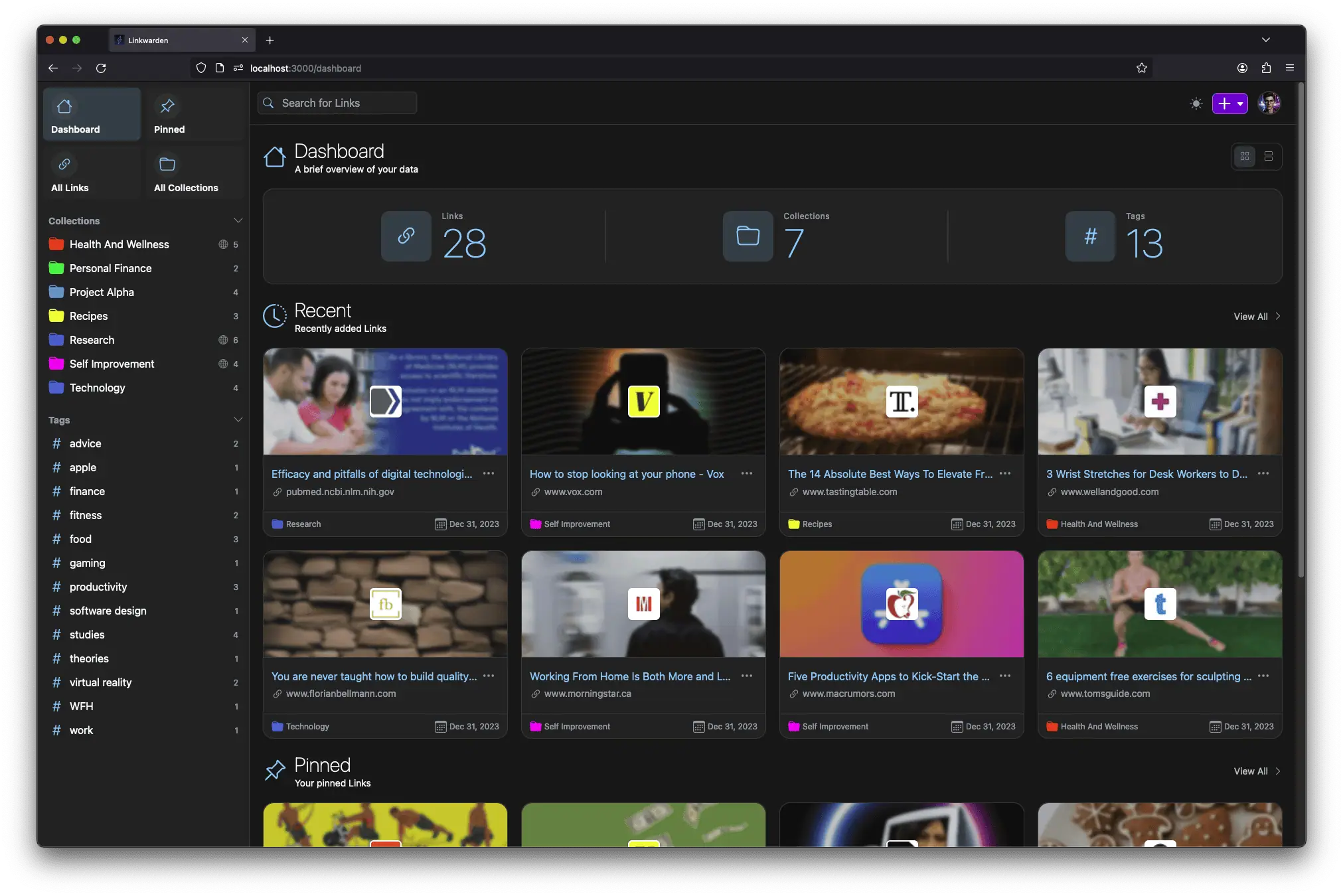
Linkwarden is a popular bookmarking app that has received a ton of recent praise in the self-hosted community for its fast pace of development and extensive support for third-party integrations. Its user interface has evolved significantly from its early days and new functionality is added regularly on top of its already-extensive feature set – webpage screenshots, Wayback Machine archiving, organization via collections and tags, sharing, pinning, multi-user capabilities with SSO, and a ton of customization options.
The application comes with a ton of support for adding bookmarks via third-party tools, which include Floccus sync, desktop apps, Raycast support, and browser extensions.
Linkwarden can be installed via bare metal or Docker and requires a PostgreSQL database for storage.
Linkding
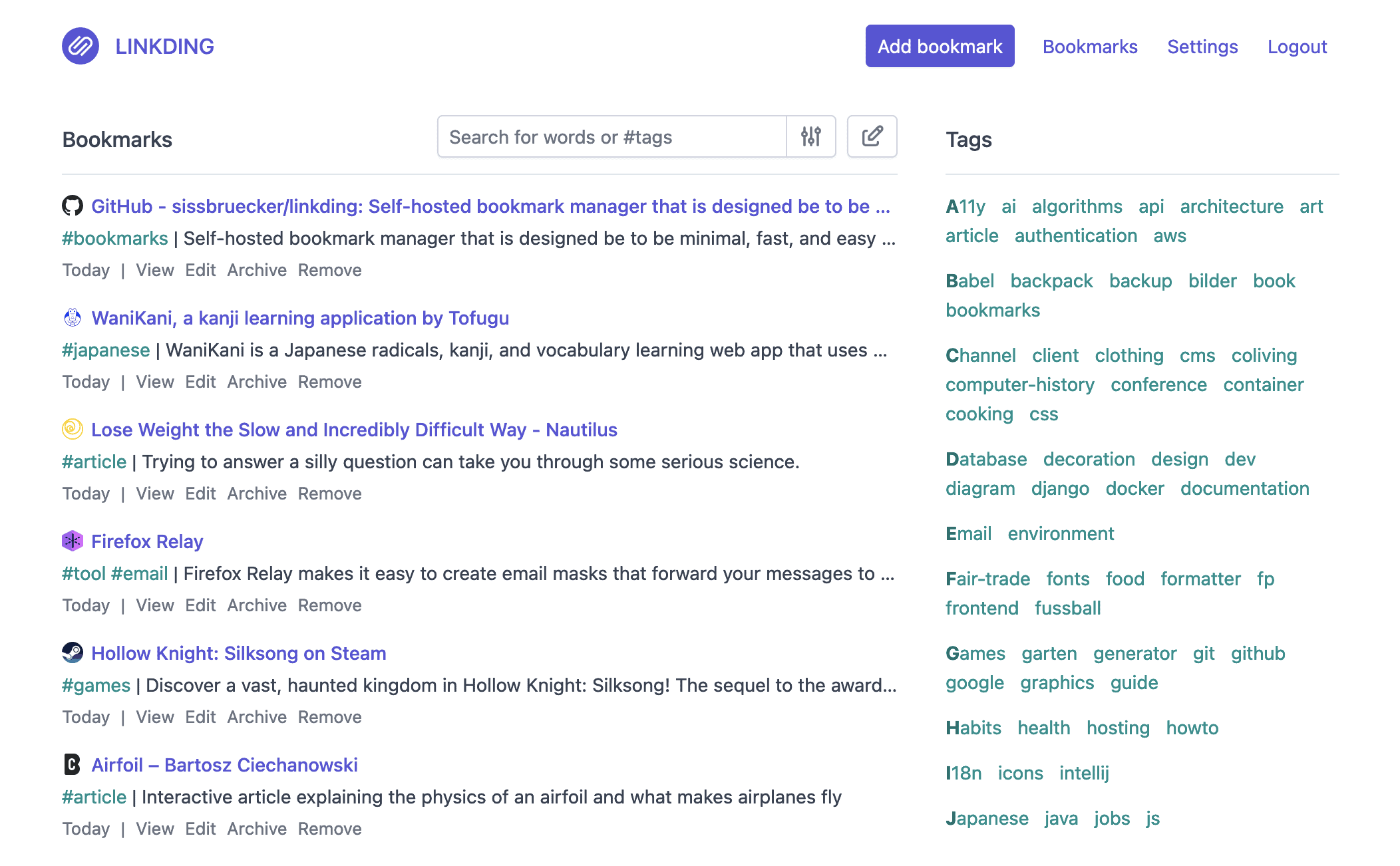
Linkding is another popular bookmarking app that places an intentional focus on minimalism and simplicity. While its web interface supports article thumbnails, its default view is text-based and features a basic listing of article names and descriptions with tags for filtering off to the side. Despite this, it rivals the others in this article in functionality with support for web archiving, multiple users and SSO, metadata import and extraction, and tags for organization.
The platform also seems to have a bit of a cult following in terms of third-party companion apps with support for adding links via browser extensions and dedicated apps.
Linkding can be easily installed via Docker, supports SQLite and PostgreSQL database engines, and comes with multiple images of varying sizes for archival support as needed.
Hoarder
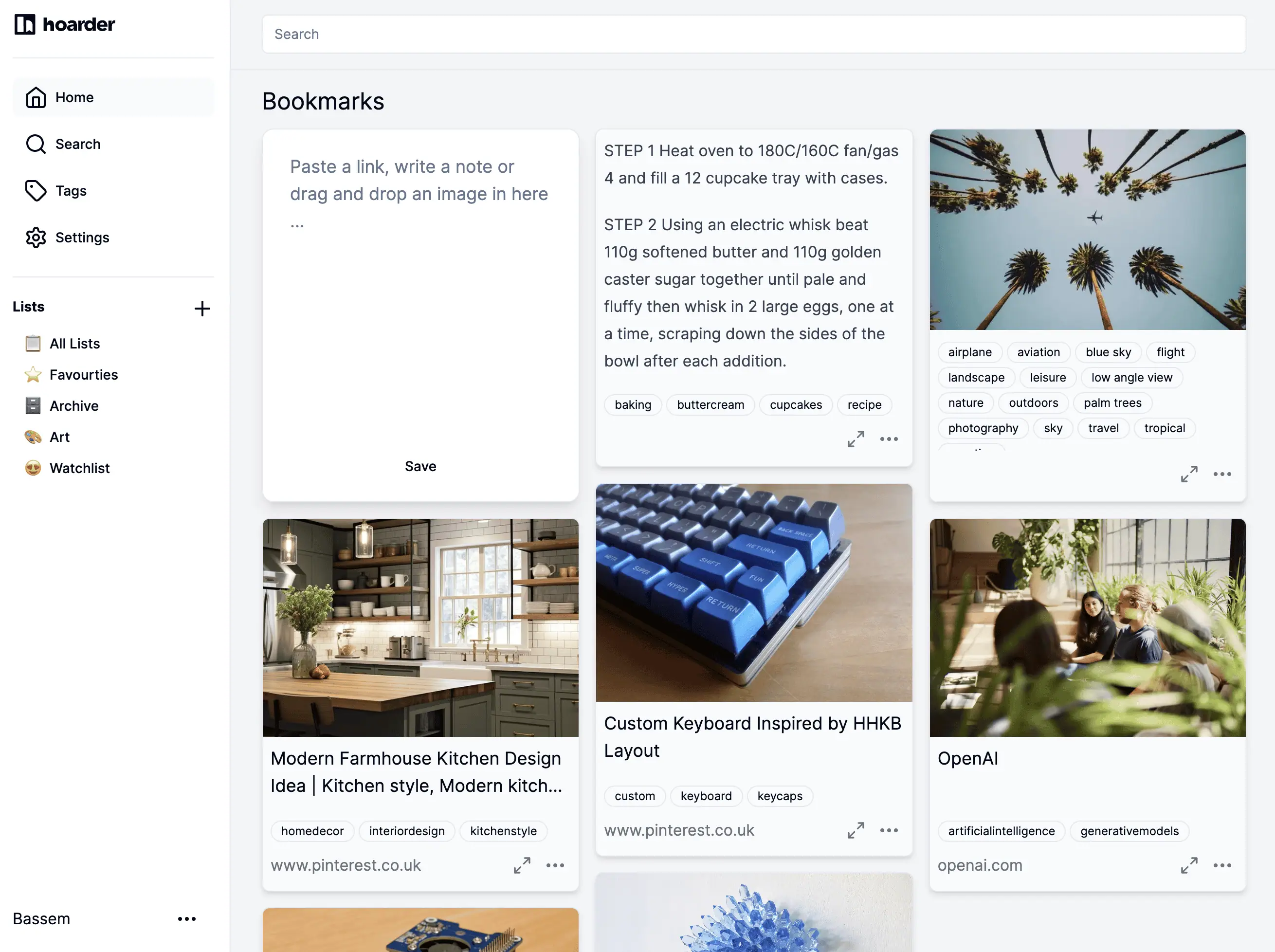
Hoarder is – relatively speaking – one of the new kids on the block after dropping its first release earlier this year. Despite this, its strong initial support for AI-based tagging, stable first-party mobile apps, and a modern, clean interface have quickly propelled it to popularity rivaling its counterparts. Unlike some of the other alternatives, Hoarder aims to be an all-encompassing platform for data hoarders with support for features like OCR extraction, simple note-taking functionality, and video archiving via youtube-dl.
Users looking to easily add content to Hoarder can leverage its first-party iOS and Android apps and Chrome and Firefox extensions.
Given its extensive functionality, Hoarder requires a bit more overhead to deploy than the others but provides clear instructions on how to do so easily via Docker. Users are also given the option to skip some of its optional containers like Meilisearch, which is leveraged for search within the application.
Readeck
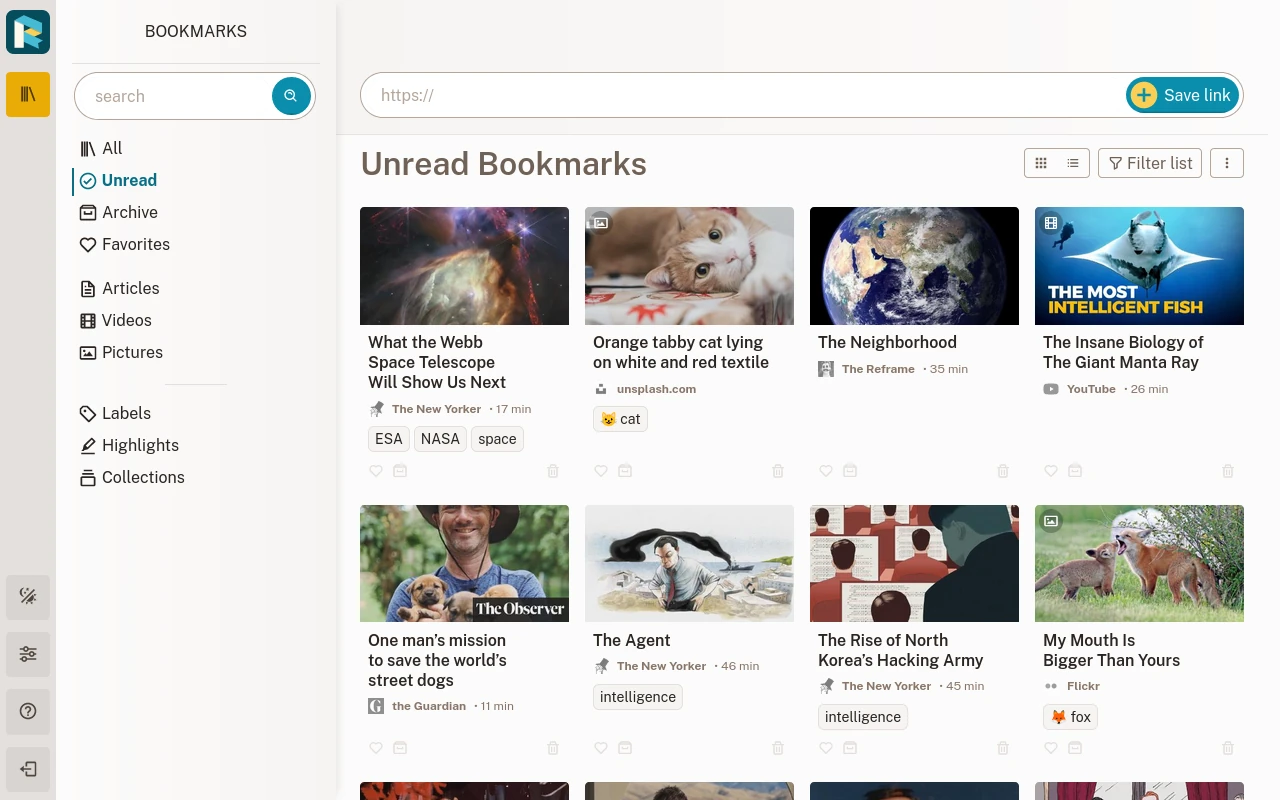
Readeck is another relative newcomer that relies on simplicity, speed, privacy, and a clean user interface to stand out among the rest. The application boasts the usual core feature set plus a few unique bells and whistles – bookmark highlights, e-book exports, and in-app archival (including video transcripts) that promises no external requests are made after a webpage is saved for the first time. And while this is just a weird personal preference, Readeck's icon is also masterfully designed.
Readeck's third-party support and integrations aren't as robust as some of the others on the list, but its first-party Chrome and Firefox extensions should get the job done for anyone who spends most of their time archiving directly from the browser.
Readeck can be easily installed via bare metal or Docker and does not include any options to configure a storage backend other than the default SQLite database (per the developer's notes, bookmark data is stored in separate ZIP files).
Grimoire
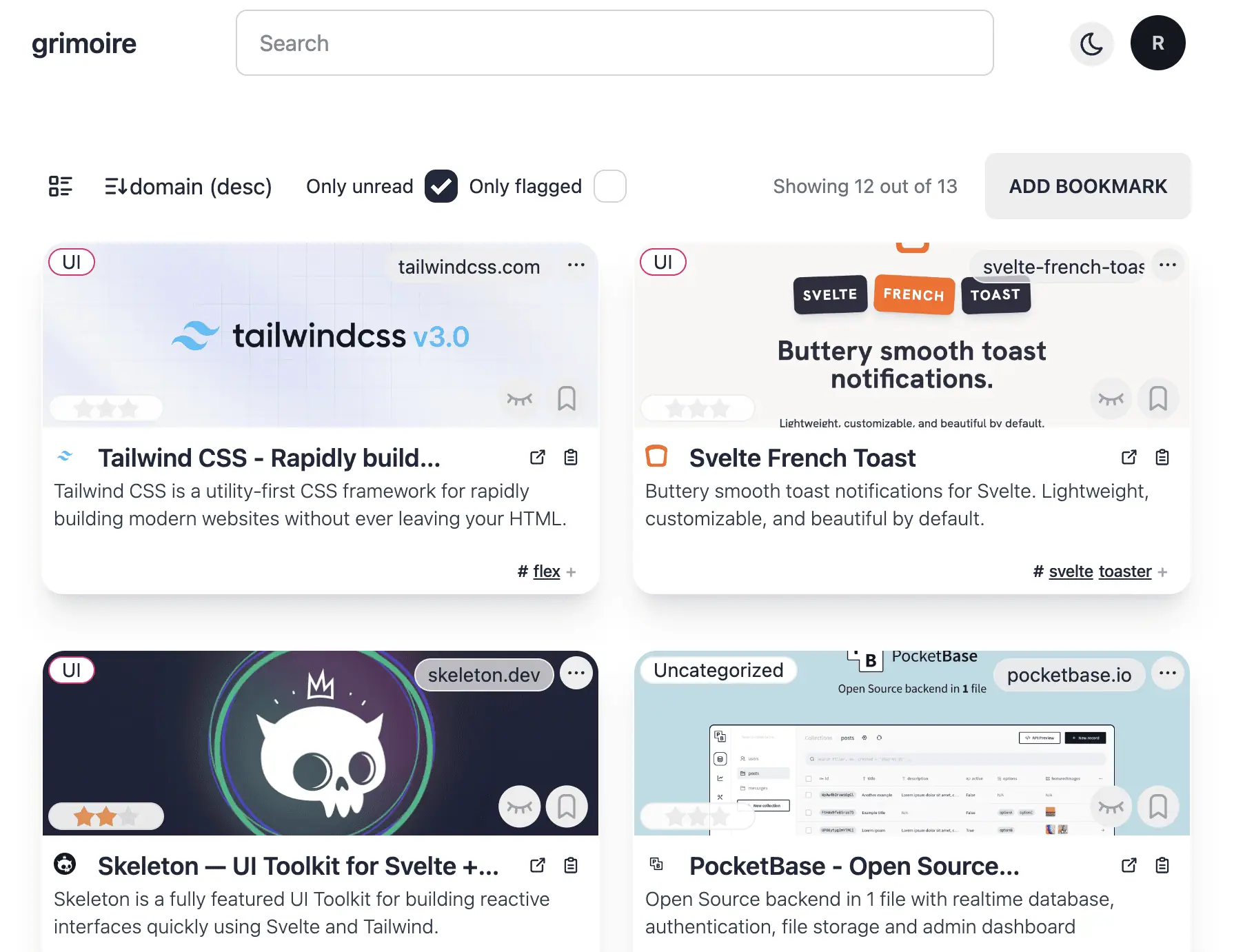
Grimoire punctuates the toddler-aged applications on this list, but like the others, is a serious contender with a fun marketing twist on its capabilities (bookmarks for wizards, unleash your inner sorcerer...). The application sports the usual capabilities and makes up for a slightly bland interface with an integrated dark mode (for all of the dark wizards out there). Grimoire also comes with multi-user support, the ability to fetch updates for saved articles, and an integration API for adding bookmarks from other sources.
Bookmarking directly from the web can be done via the platform's first-party Chrome and Firefox browser extensions.
Grimoire can be easily enchanted, ahem, installed via bare metal or Docker and doesn't require any additional containers or services to run.
LinkAce
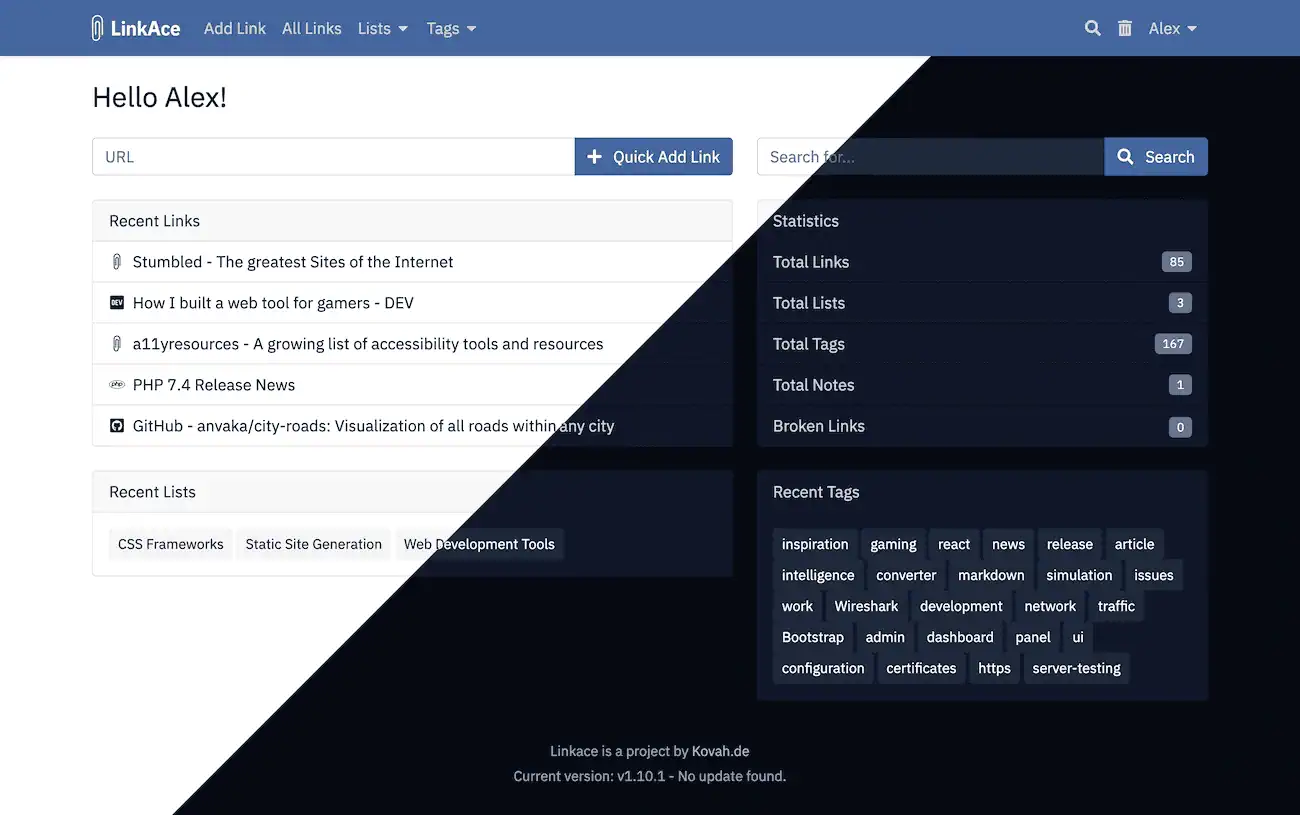
LinkAce is a no-frills bookmarking service for users looking to save webpages without the additional overhead of nice-to-have features like AI and OCR. Its user interface is arguably the most basic on the list, but that doesn't make it a less capable platform – aside from the typical features, some of its more unique functionality includes automated link monitoring and database/application backups to S3-compatible storage.
LinkAce has a somewhat unique take on capturing pages externally with support for a bookmarklet rather than traditional browser extensions.
The application can be easily installed via bare metal or Docker and allows users to replace its default MySQL database with SQLite or PostgreSQL.
Honorable Mentions
What did I miss?
Did I miss anything? Feel free to reach out using any of the communication methods listed on the site's contact page to get in touch.


Comments